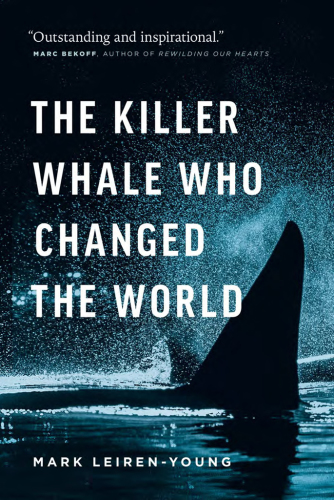
The Killer Whale Who Changed the World
- اطلاعات
- نقد و بررسی
- دیدگاه کاربران
نقد و بررسی

August 1, 2016
Moby Doll was a killer whale captured from the Pacific Ocean by the Vancouver Aquarium in 1964. During the 87 days the creature lived in captivity, researchers learned about orca behavior, diet, and physiology. The Society for the Prevention of Cruelty to Animals of British Columbia protested the capture and holding of whales as inhumane, and supporters of the then-new organization Greenpeace gained ground. Leiren-Young, a passionate environmentalist, is a Canadian journalist and screenwriter who skillfully weaves whaling history and information about the growth of scientific knowledge of the whale life cycle and social behavior into this account of the people and politics of the Vancouver Aquarium in the 1960s and 1970s. VERDICT This well-written book will appeal to general readers interested in the topic; however, Philip Hoare's The Whale: In Search of the Giants of the Sea and Alexandra Morton's Listening to Whales: What the Orcas Have Taught Us present more comprehensive treatments of the subject.--Judith B. Barnett, Univ. of Rhode Island Lib., Kingston
Copyright 2016 Library Journal, LLC Used with permission.

September 1, 2016
In 1964, the Vancouver Aquarium was expanding and needed a showpiece exhibit to act as the centerpiece of its new addition. Killer whales, those fearsome and rapacious predators, were found in the waters around Vancouver and were deemed to be the perfect subject for the centerpiece: a full-sized sculpture. So, to great fanfare, a hunting expedition set out to harpoon a whale that would, in death, serve as a scientifically accurate model. But when the harpoon merely pierced the whale's back, the hunters realized they hadn't killed a whale; they'd captured one. Thus begins the tale, so vividly told by journalist Leiren-Young, of the first killer whale successfully kept in captivity, a whale so renowned for her gentleness that she was named Moby Doll. Though she only survived a mere three months, and was found to be a juvenile male, Moby Doll forever changed the public perception of what had been considered the ultimate predator. As Leiren-Young observes, Moby Doll's legacy is the redefinition of the species as the friendly, intelligent orca and the ongoing research into orca biology.(Reprinted with permission of Booklist, copyright 2016, American Library Association.)




دیدگاه کاربران